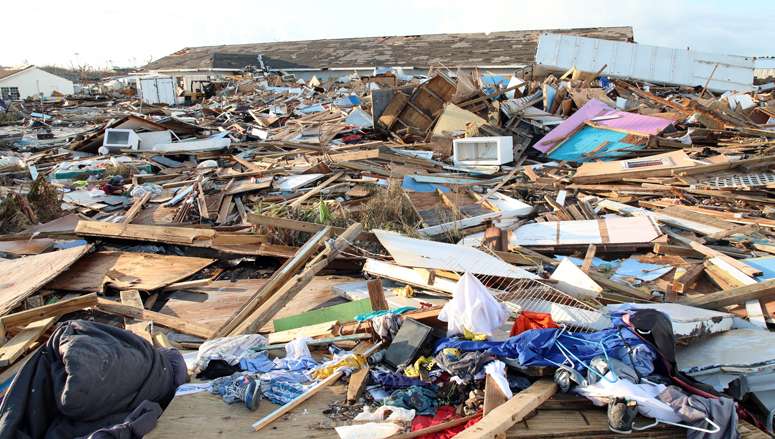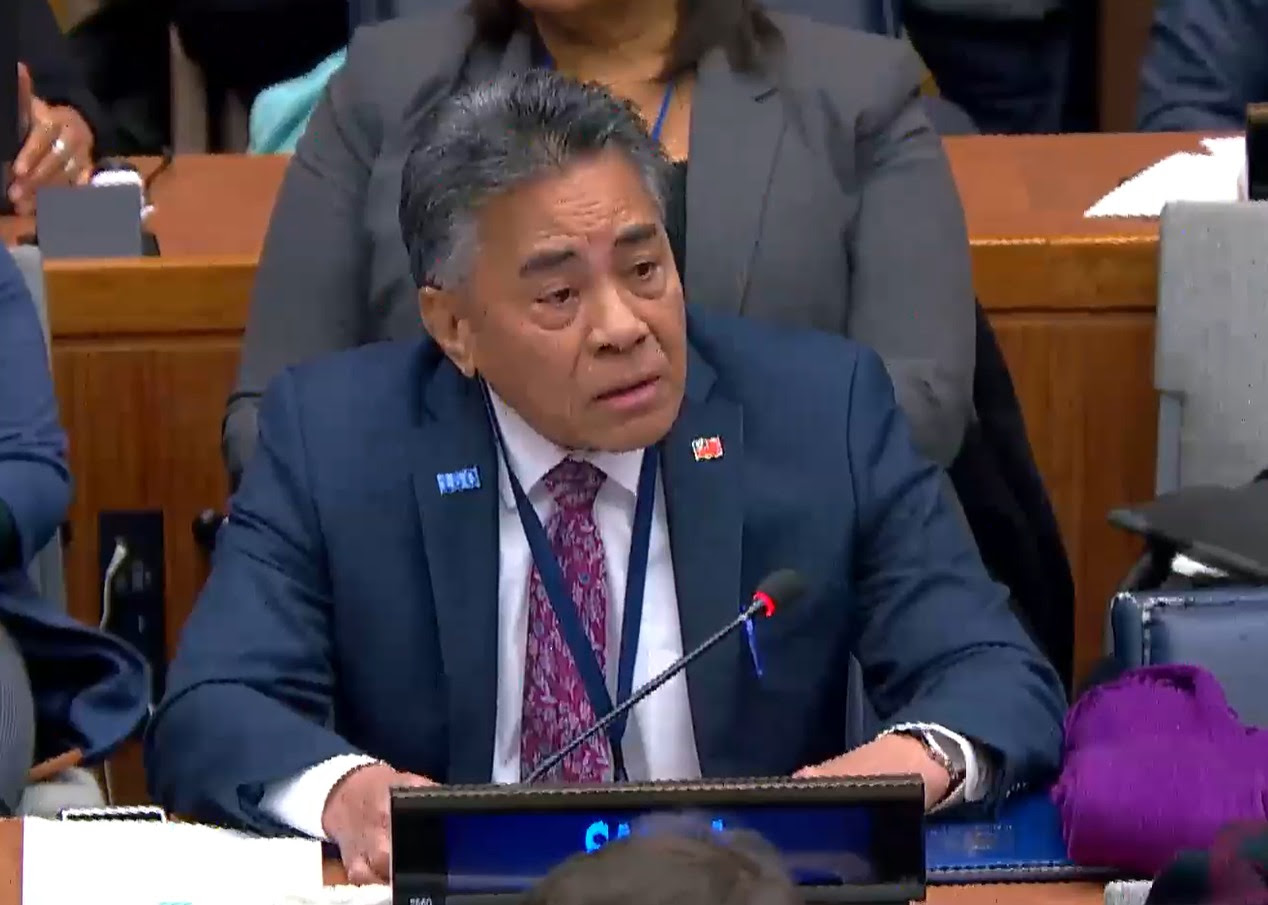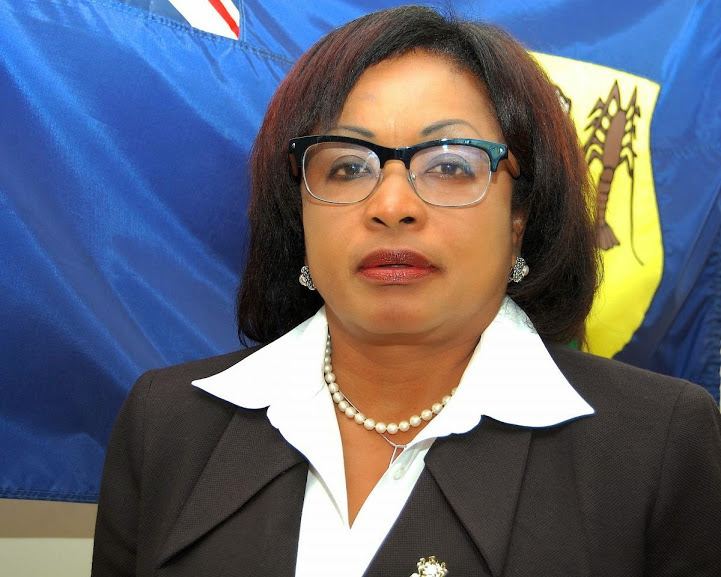By Desmond Brown
MADRID – The chair of the Alliance of Small Island States (AOSIS), Lois Young, has stressed the urgency for an increased focus on loss and damage at the United Nations Climate Conference (COP25), underway here.
Young, who currently serves as the Permanent Representative of Belize to the United Nations, said since the beginning of the UNFCCC process 30 years ago, loss and damage has never been a dormant issue in Small Island Developing States (SIDS).
“The agreement that we got in Paris on loss and damage is nowhere near ideal,” Young said, adding: “Unfortunately, any discussion on loss and damage is met with unease by our partner countries, that wish to evade the issue of compensation and liability.
“We have made concessions in the past to accommodate these concerns, but we do not think that this should be a precondition for every action which is undertaken on this issue,” she added.
Young pointed to “the harsh reality of loss and damage” experienced in SIDS, including in The Bahamas during the just ended hurricane season, and in Antigua and Barbuda in 2017.
This past September, The Bahamas was hit by Hurricane Dorian, resulting in initial damages already totalling US$3.4 billion, equal to one fourth of their Gross Domestic Product (GDP).
The catastrophic 2017 Atlantic hurricane season affected many Caribbean states, resulting in an estimated 3,300 deaths and damages estimated at US$282 billion.
In Dominica, Hurricane Maria resulted in total damages of US$931 million or 236 per cent of their 2016 GDP.

Environment Minister of The Bahamas Romauld Ferriera said Abaco – one of the two islands impacted by Hurricane Dorian – represents one of the first islands colonized and settled by modern-day Bahamians.
“What it took three, four, five generations to build and establish, was gone in 24 hours. We had 70 people confirmed dead, hundreds missing, thousands traumatized, an entire nation saddened and in mourning,” Ferriera said.
Pointing out that the science has been very clear for a long time in relation to climate change, Ferriera said the only way to resolve this issue is to build climate smart and to build climate resilient.
But he said this will require funding, and with the huge impact The Bahamas’ economy has already seen, the rebuilding process is going to be very challenging.
“We must unite with a common voice to call out those countries that are behaving in an unacceptable manner. There is no other way. We can’t sugar coat it; we can’t pet it; we have to call them out on it because our very existence as a country is at stake,” Ferriera added.

Meanwhile, Tumasie Blair, Counsellor for Antigua and Barbuda at the United Nations, reminded the conference that Barbuda was decimated by Hurricane Irma in 2017, its entire population left homeless and its buildings reduced to empty shells.
“For the first time in over 300 years there were no permanent residents on Barbuda. The footprint of an entire civilization was emasculated by the brutality and magnitude of hurricane Irma,” Blair said.
“Barbuda is a mere 62 square miles. When Hurricane Irma thundered over the island of Barbuda it was 375 miles wide with gale force winds of 220 mph. Barbuda did not stand the faintest chance against such size, such ferocity and such intensity.
“The issue of loss and damage is beyond rhetoric; it is beyond just a definition or simply computing numbers. It is beyond generating reports and references. The issue of loss and damage is simply our right to survive. It is a race against time and it’s an essential weapon in this climate war,” Blair added.
Catastrophic damages and irreversible losses
Young noted that SIDS have been experiencing catastrophic damages and irreversible losses from the immediate and slow onset impacts of climate change.
“This is why SIDS have been, and continue to be the strongest advocates for the recognition of loss and damage in this discourse,” she said.
UN-OHRLLS Under-Secretary-General Fekitamoeloa Katoa ‘Utoikamanu said it is critical now more than ever to continue discussions on loss and damage.
She said this is particularly important in light of the findings in the Special Report on Global Warming of 1.5 °C by the Inter-Governmental Panel on Climate Change.
“What is clear is that the effects of human-induced climate change are worse than previously projected and that the associated risks have been increased immensely, almost to a point of no return for our ecosystems, economies and human wellbeing,” ‘Utoikamanu said.
“The IPCC report on global warming of 1.5 Degrees indicates that even warming at 1.5 Degrees, amplifies the exposure to the risks associated with sea level rise, including increased saltwater intrusion, flooding and damage to infrastructure.
“We have only begun to see the devastating impact of climate change as we experience the increasing frequency and intensity of extreme weather events,” she added.
‘Utoikamanu said there is no denying the urgency for which we must all respond, raising collective ambition to effectively address this global challenge.
“Limiting global warning to 1.5 °C remains feasible and we must take the necessary climate action to do so,” the UN representative said.
“We must ensure that the particularly vulnerable countries such as the Small Island Developing States and Least Developed Countries are not left behind and are able to address loss and damage with the commensurate level of support to do so.”




